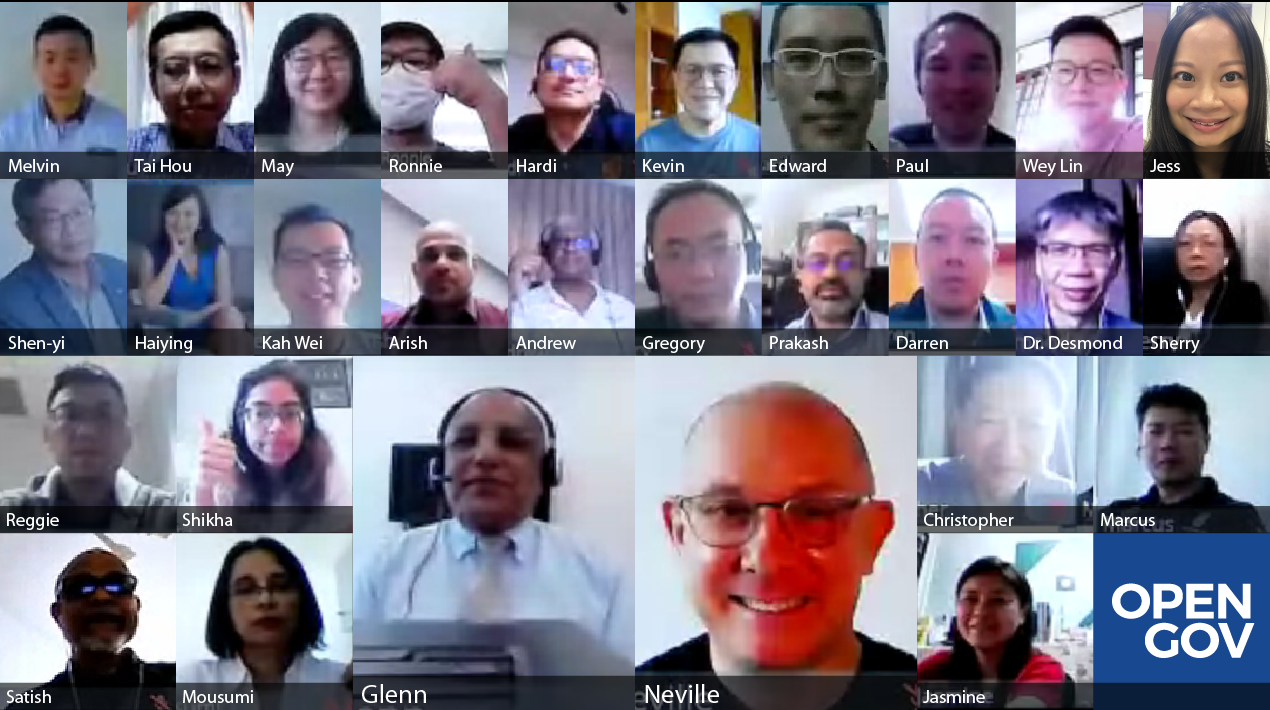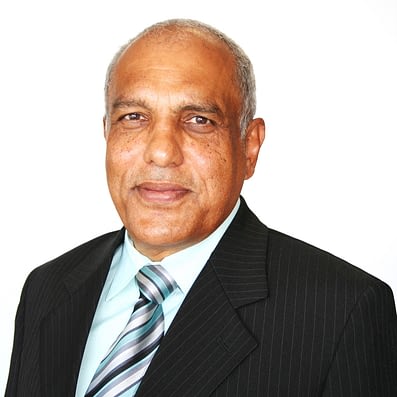
With the growing need and dependence on data protection and management, investing in the right cloud application, finding the right partners and hiring the right people with innovative mindset are key solutions for government agencies to consider in giving their operations a boost in terms of efficiency and flexibility.
This was the cornerstone principle put on the table for discussion during the OpenGovLive! Virtual Breakfast Insight: Optimising Cloud Deployment for a High-Performance Digital Government held on 8 December 2020.
The virtual session was attended by ICT executives from governments across Singapore. The session saw a plethora of insights, perspectives and opinions being shared not only regarding problems that government offices encounter but about various data management solutions that agencies can utilise for effective operations.
The overwhelming response from digital executives from Singapore paved the way for intense dialogue. Top officials from a wide cross-section of government agencies presented challenges they encountered with the shift to data management as a tool to handle voluminous information. Solutions were also discussed at length on how to engage government agencies’ workforce in adhering to a rollout of innovative data and cloud storage systems.
Catering to citizens’ demand for government services through cloud solutions

Mohit Sagar, Group Managing Director and Editor-in-Chief at OpenGov Asia, believes to keep up with the increasing demand for government services by increasingly tech-savvy citizens, agencies must invest in the right solutions and the partners to ensure that its glass is always kept full.
A smart nation means ensuring that everything is working in top shape, being flexible and being connected at all times. While this notion is not new, what has essentially surfaced during the COVID -19 pandemic is the importance of scalability.
To emphasise his point, Mohit expounded on how citizens have become smarter. They have technology at their fingertips to ask and receive services and can engage with private providers anywhere, anytime. What this means for government agencies is that they have to continuously invest in integrated, scalable and seamless data management applications, all tailored to fit both the needs of their offices and the general public.
One of the solutions offered by Mohit in his opening speech is quite simple – keep your citizens happy. This principle goes to the very core of public services that agencies have sworn to abide by.
Government agencies should go beyond putting up in-house data security systems but rather must capitalise on its big IT arm. They must also team up with partners for data management services rather than try doing everything by themselves.
Finding the right data management solution

Expanding on the concepts laid down by Mohit, Neville Vincent, Vice President, South Asia Pacific, Nutanix, simplified the concept of using public cloud by likening it to a hotel. It needs to be available, convenient and flexible. While there is truth to the notion that investing in data management is an additional cost, the benefits far outweigh the disadvantages.
The next level of cloud solutions was compared by Neville as a service department. There are many features in a cloud data service that can be customised by organisations. Regardless of whether an organisation is public or private, people should always look for three components: security, performance, and economics.
Neville eased the apprehension of participants by adding that there really is no such thing as the best cloud application in the market for a specific organisation. The answer is to mix and match between several modalities and apply a multi-level approach to achieve the right mix of quality performance, reliable security, and economics custom-fit to suit an agency’s needs.
For Neville, finding the right cloud data service is a balancing act. All three elements must be considered by government agencies. When it comes to choosing effectively which data system would work best, the question to be pondered is whether one has the right workload at the right workplace and at the right time.
The power of taking risks

Glenn Ashe, Chief Information and Technology Officer, Australian Institute of Health and Welfare, highlighted the steps his office undertook with regards to teaming up with the private sector for secure cloud solutions.
Glenn addressed some of the usual problems that most agencies are exposed to in their daily operations. To solve these, Glenn and his team opted to transition from a traditional mode of gathering and storing data to cloud storage and management. This solution significantly improved operations.
“We transferred the IT operating model. We went down the pipe to transform our ICT to be much more flexible, resilient, and to be able to deliver high-performance services. We have scaled on prime modes to meet business demands. It accelerated modelling turnaround time,” Glenn explained.
The benefits of shifting to innovative data services are many. For one, these solutions are flexible and on another standpoint, they are resilient. These elements allowed Glenn and his team to handle a massive amount of data in healthcare with data computing technology. Prime resources, he added, can be added much more flexibly.
He added that the impact of the COVID -19 pandemic also pushed the organisation to look for a strong system that would allow it to handle an immense amount of data while allowing the workforce to work within the confines of their homes.
Polling questions
After the presentation of the speakers, attendees were engaged in an in-depth discussion facilitated through the polling questions.
The first question inquired about the current cloud strategy employed by the various attendees. More than half (56%) said that they rely on a hybrid cloud system.
According to a senior delegate from the Accountant General’s Department, with so much happening in government operations including that of standardisation, a hybrid cloud program is the best way to go. Questions to be considered would be narrowed down to those related to end goals of an organisation and the type of data classification needed in storage solutions.
As to how their agencies leverage data, again almost half answered that they currently employ data integration. This is despite stringent government-instituted policies and classified data make agencies wary to share in an online platform. Notwithstanding, there is still data sharing that happens in some government offices, including those providing health services.
The issue of how organisations get the right skillset from the workforce it hires was also raised during the session, with about a third (37%) of respondents saying they consider other modes of acquiring appropriate skills from employees through means other than training, hiring, and partnership. This was tailed closely by training (33%).
For a majority of the participants, the trick is not just to train or to hire but to mix two or three modes. Hiring a good employee is one thing but hiring should also be followed by rigorous training.
One interesting point made during the poll was that protection is a significant added value for agencies relying on cloud services and infrastructure. A majority (61%) voted for protection as a significant added value.
An executive from the National Environment Agency felt that protection is closely intertwined with reputation. A breach on data would mean a breach of reputation which government agencies and organisations work hard to maintain.
When asked how attendees differentiate between cloud providers for workload solutions, the attendees identified services over than performance and integration as the main differentiator. The reason is that optimum performance from cloud service providers is already a given, as well as integration. With services, this feature must be fully integrated to fit a specific government function.
On the final question, almost three quarters (73%) felt that the biggest challenge for agencies and organisations are the workforce and employee skill-set. While, as Neville stated, knowledge of people is important, it is critical to continuously foster a high level of curiosity with employees to make them open for changes – in the organisation and solutions, including shifting to online data management.
Conclusion
The session came to a close with some food for thought from Neville on how organisations can receive help in choosing the right partners and putting forth a new mindset for its employees. He said that cloud management is a real game-changer. With this technology, things have become more complex. The big question then is how to make the best of it and use it for organisations’ own advantage.
In the end, the answer lies in addressing the need to make the right cloud decision. This, Neville said, can be done by maintaining an appetite for knowledge, information, change, and guidance.
















